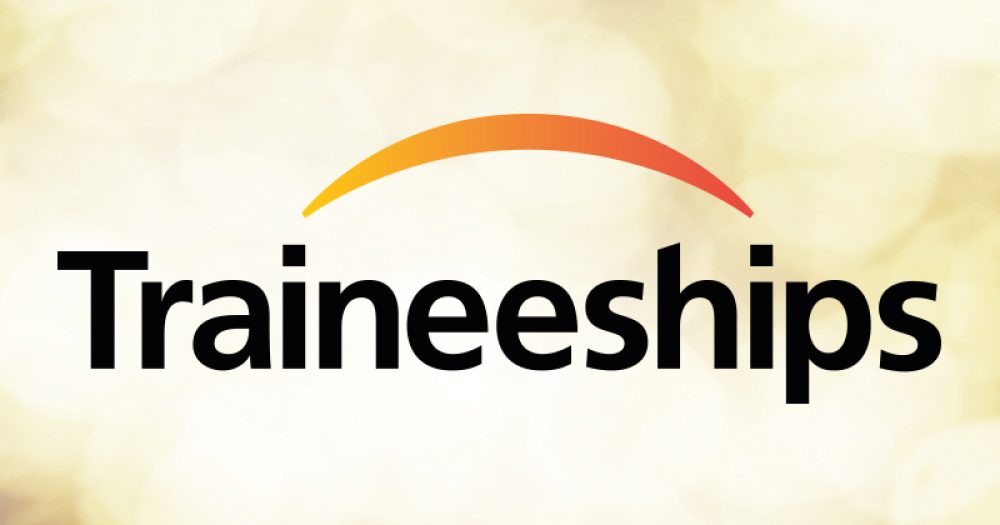The Department for Education has relaxed its requirement for students on traineeship programmes to record 100 hours of work experience owing to the social distancing measures caused by the coronavirus pandemic.
Providers will be allowed to the mark the component as complete if the trainee has completed more than 70 placement hours and they are satisfied that the learner has “gained sufficient work skills”, the department said in a statement tonight.
Officials will also allow providers to extend the traineeship programme duration up to 12 months where the learner has “not completed their qualification and basic skills learning aims including employability, maths or English” or where the student has completed less than 70 planned work experience hours.
They can also extend the duration if the provider has “assessed the learner as needing further work placement hours to complete this element of their traineeship”.
The DfE said this flexibility is offered “on the basis that the trainee undertakes online or alternative distance learning to complete other non-work experience learning and/or alternative work experience learning part of the traineeship where online learning is possible”.
Any provider that has trainees with reduced work experience hours should “record this and retain it as evidence for audit purposes” and the trainee should “continue with other learning aims via alternative methods such as online learning in order to complete these elements of their traineeship”.
Providers will need to “demonstrate” how they have continued to support trainees to develop their work experience skills in the absence of a work placement in the learner file such as “developing content that aligns with apprenticeship provision to facilitate smooth transitions from traineeship to apprenticeship” and “developing matching processes for when students can go on placements again”.
The DfE said they have introduced these flexibilities as they want to “enable providers to continue to deliver where possible given traineeships will play an important part in re-engaging and supporting young people to get back into learning and work following the coronavirus outbreak”.
Mark Dawe, the chief executive of the Association of Employment and Learning Providers, said his organisation “very much welcomes the changes as they will help keep a critical programme alive”.
But, he added, to prevent “abuse” on the relaxation of the work experience requirements, DfE “must only apply while the lockdown remains for each sector”.
Dawe continued: “The extended programme duration is also a sensible decision. It’s essential that traineeships are in rude health to help deal with the surge in youth unemployment and they can form the foundation of a wider pre-employment programme in the coming months.”
This evening’s announcement went on to detail how to extend 16 to 19 study programmes and how to extend 19 to 24 adult education budget and 16 to 18 traineeships without 16 to 19 study programme funding.
Here’s what it says in full:
Extending 16 to 19 study programme traineeships
“Our funding guidance sets out that planned hours should not be changed after the qualifying period unless correcting an error or starting a new study programme in-year. However, we recognise that in the current circumstances some students may need more hours than originally planned in order to complete their traineeship programme.
Where learners need longer than originally planned to complete their traineeship programme, we expect, in most cases, stretching their existing planned hours over a longer duration should provide the flexibility providers need.
In exceptional circumstances, where a learner with part-time hours requires significant extra delivery, while they are unable to deliver work experience with an employer, providers can increase the planned hours. Providers should record where an increase of planned hours is required in the learner file and demonstrate the need for increased hours to ensure learners remain engaged. We may ask for this evidence through monitoring processes.
The planned end date must not under any circumstances be changed or extended within the ILR. Providers should continue to record the end date of the programme using ‘Learning Actual End Date’.
We expect providers to arrange alternative provision to cover the delivery that cannot take place. The alternative delivery needs to be above the already planned work experience hours as these cannot be funded again within the same time period.
This is a temporary measure that applies only in this period of social distancing and while students are not able to access work placement activity.”
Extending 19 to 24 adult education budget and 16 to 18 traineeships without 16 to 19 study programme funding
“Where learners need longer than originally planned to complete their traineeship, programme providers should stretch their existing planned learning aims over a longer duration.
The planned end date must not under any circumstances be changed or extended within the ILR. Providers should continue to record the end date of the programme using ‘Learning Actual End Date’.
Additional funding demand in 2020 to 2021, as a result of the programme’s actual end date extending from the original planned end date in 2019 to 2020, may impact on the availability of growth in 2020 to 2021 if there is not sufficient budget available to support demand. It is your responsibility to ensure you meet the cost of trainees that continue into the following year within your funding year allocation.
This is a temporary measure that applies only in this period of social distancing and while students are not able to access work placement activity.
For more information, we are publishing a traineeship addendum to the ESFA adult education budget funding rules 2019 to 2020 on 13 May.”









Your thoughts